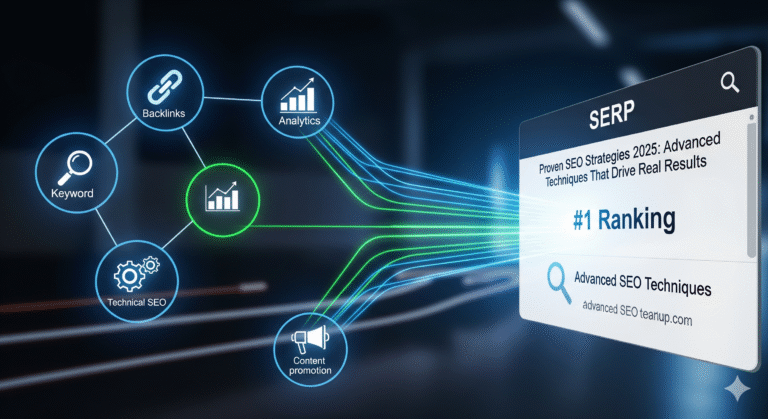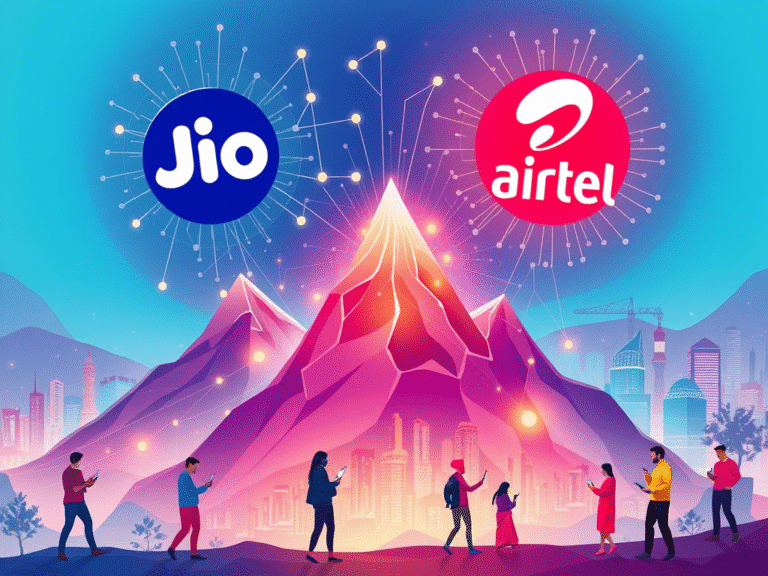Complete Guide To Social Media Marketing: Concept & Process?
Social media isn’t just about sharing vacation photos or debating whether pineapple belongs on pizza (I’m team pineapple, by the way) – it’s where brands transform into household names and businesses connect with millions of users through simple interactions.
If you’ve ever found yourself scrolling through TikTok at 2 AM, suddenly convinced you need that revolutionary self-cleaning water bottle, then you’ve experienced the incredible power of social media marketing firsthand!
Here’s the reality check – achieving viral success on social platforms takes much more than catchy hashtags and adorable promotional videos. You need a strategic, well-executed plan to rise above the noise and capture your audience’s attention.
Whether you’re running a small business focused on building brand recognition or managing an enterprise seeking better returns on advertising investments, social media marketing offers tremendous opportunities for growth.
Let’s dive into this comprehensive guide covering everything you need to know about social media marketing and how it can transform your business!
Table of Contents
What Is Social Media Marketing?
Social Media Marketing (SMM) represents the strategic use of social media platforms to promote products, services, or brands. It’s where traditional advertising meets modern digital engagement, creating content designed to captivate, entertain, and convert your audience into devoted customers.
Unlike conventional marketing approaches, SMM thrives on interactive communication. Rather than simply broadcasting messages, it focuses on genuine engagement with audiences, building meaningful relationships and fostering connected online communities.
From creative Instagram stories and trending TikTok content to professional LinkedIn articles, success depends on delivering your message through the right channels to reach your target audience effectively.
Why Social Media Marketing Matters for Businesses
Here’s why modern businesses must prioritize social media marketing:
1. Unprecedented Audience Reach
Social media platforms aren’t just popular—they’re essential digital real estate! With 5.2 billion active users worldwide, approximately 60% of people engage with social media daily. For businesses, this represents unlimited access to diverse, global demographics.
2. Integration with Comprehensive Digital Marketing Strategies
Whether your objectives include improving brand recognition, increasing website traffic, or driving sales growth, social media marketing integrates seamlessly with broader digital marketing strategies to amplify overall campaign effectiveness.
3. Platform Versatility
Today’s social media landscape offers incredible versatility for business applications. Each platform serves distinct purposes:
- Facebook – Excellent for community building and targeted advertising campaigns
- Instagram – Visual storytelling platform perfect for showcasing brand personality
- LinkedIn – Professional networking hub ideal for B2B audience engagement
- TikTok – Creative space for experimenting with trends and reaching younger demographics
Social Media Marketing vs Digital Marketing
Social media marketing plays a starring role within digital marketing strategies, but understanding how they differ and complement each other is crucial for business success.
While both approaches boost brand awareness and engagement, their scope and methodologies vary significantly.
Key Differences Between SMM and Digital Marketing
| Aspect | Social Media Marketing | Digital Marketing Strategies |
|---|---|---|
| Scope | Focused on social platforms like Facebook and TikTok | Comprehensive approach including SEO, PPC, email, and more |
| Goals | Real-time engagement and brand visibility | Broader objectives like lead nurturing and search rankings |
| Techniques | Organic content, influencer partnerships, social ads | SEO optimization, email campaigns, blogs, and PPC advertising |
| Tools | Content creation platforms like Canva and Buffer | SEO tools (Moz), email platforms (Mailchimp), analytics suites |
Which Approach Should You Choose?
Both serve different purposes based on your business objectives:
Use Social Media Marketing For:
- Building brand awareness and community engagement
- Real-time audience interaction and customer service
- Targeting audiences primarily active on social platforms
Use Comprehensive Digital Marketing Strategies For:
- Long-term growth initiatives like SEO for organic traffic
- Email marketing campaigns for customer retention
- Multi-channel approaches requiring diverse touchpoints
How Social Media Marketing Works
Social media marketing involves strategically leveraging social platforms to achieve business goals including brand awareness, sales generation, and customer engagement enhancement.
It’s not simply about posting attractive visuals – it encompasses creative storytelling, targeted advertising campaigns, data analysis, and continuous audience communication.
Let’s explore how it actually functions:
1. Platform Selection Strategy
Not all platforms offer equal value. The key is identifying where your audience spends time and how they consume content. Consider these statistics:
- Facebook boasts over 2.9 billion monthly active users, making it ideal for businesses targeting broad audiences
- Instagram serves more than 1.3 billion users, perfect for visual storytelling in industries like fashion, travel, and food
- LinkedIn remains the top choice for B2B marketers, generating 80% of all B2B leads
Understanding platform demographics helps businesses create winning strategies!
2. Balancing Organic and Paid Strategies
Successful social media marketing combines two approaches:
Organic Content – Posts, stories, and videos reflecting your brand voice. This builds authentic relationships and maintains customer connections.
Paid Advertising Campaigns – Promoted content reaching new audiences or retargeting previous brand interactions. Social media ads on Instagram and Facebook typically achieve $4 ROI for every $1 invested.
3. Audience Engagement Focus
Engagement forms the foundation of social media marketing. It’s about fostering two-way conversations:
- Responding to comments – Whether praise or criticism, responses build trust
- Interactive content – Polls, quizzes, and live sessions create meaningful connections
- Community building – Creating spaces where customers can connect with your brand and each other
4. Data-Driven Decision Making
Marketers track campaign performance through social media analytics, identifying successful strategies and areas for improvement:
- Which posts generate the most engagement?
- Do video reels outperform static images?
- What times produce the highest audience activity?
Tools like Hootsuite and Sprout Social simplify metric tracking and strategy optimization.
5. Influencer Collaborations
Partnering with influencers expands your reach through established, engaged audiences. This strategy allows businesses to amplify brand messages to thousands of potential customers instantly.
6. Content Creation and Automation
Creating engaging content doesn’t need to be overwhelming. Modern tools streamline the process:
- Canva for graphic design
- Buffer for post scheduling
- Hootsuite for multi-platform management
Social Media Marketing is done perfectly by YAAM Web Solutions
Advantages of Social Media Marketing
Social media marketing serves as the frontline soldier in modern digital marketing strategies – versatile, effective, and indispensable.

Boost your business with our expertise — Click here!
Whether you’re managing a startup or multinational corporation, leveraging social platforms to connect with audiences, build trust, and drive growth offers undeniable advantages.
Here’s why SMM transforms businesses of all sizes:
1. Cost-Effective Growth Solutions
One major advantage of social media marketing is its affordability. With the right approach, even small businesses can achieve significant results without exhausting their budgets.
- Organic Content – Creating posts, stories, and reels requires minimal financial investment
- Paid Advertising – Campaigns can start with budgets as low as $5/day, making them accessible to small businesses. Research shows 83% of marketers report excellent ROI from Facebook and Instagram ads.
2. Precise Audience Targeting
Unlike traditional advertising methods like billboards, social media marketing enables precision targeting. You can reach users based on:
- Demographics – Age, gender, location, language preferences
- Interests – Hobbies, preferences, and purchasing behaviors
- Behaviors – Previous brand interactions and online activities
This precision ensures your advertisements reach users most likely to convert, maximizing campaign efficiency.
3. Enhanced Brand Recognition
Social media marketing provides a fast track to global brand recognition. Consistently posting valuable, engaging content helps you:
- Maintain top-of-mind awareness with potential customers
- Communicate your brand’s personality and values effectively
- Build familiarity and trust with your target audience
4. Real-Time Customer Interaction
Social media enables immediate two-way communication, allowing businesses to:
- Answer customer questions instantly
- Build relationships through meaningful interactions
- Collect valuable feedback for product or service improvements
5. Measurable Performance Metrics
Social media analytics provide real-time campaign effectiveness tracking:
- Monitor engagement rates through likes, shares, and comments
- Track website traffic generated from social media posts
- Calculate conversion rates for both organic and paid content
These metrics enable continuous optimization of digital marketing strategies for superior results.
6. Influencer Marketing Opportunities
Influencer partnerships provide access to new audiences with established credibility. Micro-influencers (10K-50K followers) often achieve engagement rates up to 7%, making them cost-effective options for businesses with smaller marketing budgets.
7. Trust and Loyalty Development
Authentic audience engagement through social media marketing humanizes your brand, establishing trust and fostering customer loyalty. Customers connect with behind-the-scenes content, personal responses, and genuine interactions.
8. Global Market Expansion
Social media transcends geographical boundaries! Businesses can reach international audiences, explore new markets, and test product launches before full-scale rollouts.
Disadvantages of Social Media Marketing
Despite its remarkable potential, social media marketing presents certain challenges. Understanding these limitations helps create realistic, effective digital marketing strategies.

Let’s examine the potential drawbacks:
1. Time and Resource Requirements
Managing comprehensive social media presence can feel like a full-time commitment – because it often is.
Creating organic content, engaging with users, analyzing performance data, and managing paid campaigns all require consistent effort and dedicated resources.
2. Negative Feedback and Public Relations Risks
Social media amplifies both successes and mistakes. A poorly crafted post can generate widespread criticism and damage brand reputation.
Consider how global companies have faced massive backlash for mishandling customer complaints, with condemning hashtags trending worldwide within hours.
Common risks include:
- Miscommunication or insensitive messaging
- Viral spread of customer dissatisfaction
- Competitor or troll attempts to damage your reputation
3. ROI Measurement Challenges
Approximately 44% of marketers struggle measuring social media marketing ROI. While you can track likes, shares, and clicks, directly linking these metrics to sales or long-term customer loyalty proves complex.
Common measurement challenges:
- Attribution gaps – Determining whether TikTok ads or email campaigns closed deals
- Delayed impact – Strategies like influencer marketing may take months to build trust, making immediate ROI difficult to quantify
Pros vs. Cons Summary Table
| Aspect | Advantages | Disadvantages |
|---|---|---|
| Cost | Affordable for businesses of all sizes with free and paid options | Time-consuming and resource-intensive management |
| Brand Awareness | Increases global visibility and audience engagement | Risk of negative publicity damaging brand reputation |
| Targeting | Highly specific audience targeting through advanced analytics | Over-reliance on platform algorithms limiting organic reach |
| ROI Measurement | Real-time campaign feedback and performance data | Difficulty directly attributing sales to specific social activities |
| Customer Relations | Builds trust through transparency and direct communication | Potential risks from data breaches or user privacy concerns |
Despite these challenges, the advantages of social media marketing far outweigh the obstacles. By utilizing appropriate tools and integrating strategies with comprehensive customer relationship management systems, businesses worldwide can unlock social media’s full potential.
Types of Social Media Marketing
Understanding various social media marketing approaches helps businesses reach target audiences effectively while improving engagement and ROI. Here are the primary types:
Content Marketing
Creating and sharing valuable content including blogs, images, videos, and infographics to engage audiences and showcase brand personality authentically.
Influencer Marketing
Collaborating with influential content creators to promote products or services. Audiences trust endorsements from people they follow and admire.
Paid Social Advertising
Utilizing advertising platforms on Facebook, Instagram, LinkedIn, and other networks to reach targeted audiences with sponsored content for rapid results.
Community Management
Actively engaging with followers through comments, messages, and conversations to build trust, loyalty, and lasting relationships.
Contests and Giveaways
Running promotional campaigns offering prizes to increase followers and engagement quickly. These initiatives encourage likes, comments, and shares, boosting visibility and follower growth.
Social Commerce
Selling products directly through social media platforms like Instagram Shop or Facebook Marketplace, creating seamless purchasing experiences for customers.
User-Generated Content (UGC)
Encouraging customers to create and share content featuring your brand, generating authentic marketing materials that build trust and credibility.
Getting Started with Social Media Marketing
By adopting proper tools and integrating strategies with customer relationship management systems, businesses worldwide can easily unleash social media marketing potential.
Here’s how to begin your SMM journey effectively:
1. Define Clear Objectives
Start by asking yourself: What am I trying to achieve? Is it brand awareness? Lead generation? Sales through paid campaigns?
Establish clear, specific goals using the SMART framework (Specific, Measurable, Achievable, Relevant, Time-bound). Examples include:
- Increase Instagram followers by 20% within 3 months
- Generate 50 qualified leads through LinkedIn before quarter-end
2. Understand Your Audience Completely
The best way to connect is understanding your conversation partners. Use social media analytics tools like Facebook Insights or Instagram’s built-in analytics to discover:
- Demographics – Age, location, gender preferences
- Interests – Topics generating engagement and interaction
- Activity patterns – Peak engagement times and content preferences
3. Choose Optimal Social Platforms
Not every platform suits every business. Select platforms aligning with your goals and audience preferences:
- Instagram and TikTok excel at visual storytelling for younger demographics
- LinkedIn perfect for B2B businesses and professional networking
- Facebook ideal for community building and reaching diverse age groups
- Twitter (X) excellent for real-time updates and news sharing
4. Develop Content Strategy
Content remains king in social media marketing, but consistency reigns as queen. Create content calendars mixing organic posts with paid campaigns.
Pro tips:
- Use content creation tools like Canva or Buffer for engaging posts
- Follow the 80/20 rule – 80% value-driven content, 20% promotional content
- Experiment with different formats – carousels, stories, reels, live sessions
5. Monitor, Analyze, and Optimize
This is where transformation happens. Use social media analytics tools to evaluate performance:
- Measure metrics including engagement, reach, and conversions
- Identify successful strategies and improvement opportunities
- Continuously refine approaches based on data insights
6. Leverage Influencer Partnerships
Collaborating with influencers provides another avenue for building audience trust and expanding reach. Social media marketing campaigns don’t require massive budgets – even micro-influencers (1,000–10,000 followers) can generate significant engagement.
Future of Social Media Marketing
The future of social media marketing looks as exciting as the platforms it encompasses. By 2025, predictions indicate over 5.17 billion people will use social media, making this trend continue climbing!
Here’s what the social media marketing landscape will look like:
1. AI and Automation Integration
Social media marketing has already experienced AI’s positive impact. A 2025 survey revealed 81% of marketers report improved workflow efficiency through AI – particularly in content generation, scheduling, and data analysis.
Tools like ChatGPT help maintain brand consistency while refining engagement strategies through automated experiences. Large-scale paid advertising campaigns will become increasingly sophisticated through AI-driven personalization.
2. Social Commerce Expansion
Social media platforms are evolving into e-commerce hubs. Social commerce is projected to generate $86.7 billion in US sales by 2025, demonstrating its importance in driving purchases.
Users can now purchase directly through Instagram Shops and TikTok’s in-app checkout features. Brands using influencer marketing for shoppable content are experiencing impressive returns.
3. Hyper-Personalization and Community Building
Audiences crave authenticity and connection. With 62% of marketers planning increased investment in social media communities, platforms are shifting from one-way broadcasting to genuine two-way engagement.
This includes niche groups on LinkedIn or Facebook, live Q&A sessions, and behind-the-scenes content. Engaged communities generate 6.3x more engagement than non-community-focused campaigns.
4. Enhanced Social Media Search Capabilities
Search engines aren’t the only discovery tools anymore. In 2025, 45% of marketers prioritize optimizing content for social media searches over traditional SEO.
Features like hashtags, image alt-text, and video captions make content more discoverable within platforms. This trend enables brands to reach users directly where they spend most of their time.
5. Short-Form Video Dominance
Video content continues ruling engagement, with TikTok, Instagram Reels, and YouTube Shorts leading with exceptional engagement rates.
Users spend an average of 34 hours monthly on TikTok alone, indicating strong demand for creative, bite-sized storytelling. Brands adapting to trends and incorporating strong calls-to-action in videos are thriving.
How YAAM Web Solutions Enhances Social Media Success
At YAAM Web Solutions, we specialize in making complex digital landscapes simple while delivering measurable results. Whether you want to boost brand awareness, increase engagement, or launch successful paid advertising campaigns, we provide customized approaches tailored to your unique needs.
Our expertise spans all major social media platforms, utilizing innovative content creation tools and cutting-edge social media analytics to ensure campaigns resonate with target audiences.
By integrating customer relationship management systems and embracing latest trends like AI and influencer collaborations, YAAM Web Solutions helps businesses unlock their complete social media potential, driving growth and measurable ROI.
Our Services Include:
- Comprehensive social media strategy development
- Creative content creation and management
- Targeted paid advertising campaigns
- Influencer marketing coordination
- Social media analytics and reporting
- Community management and engagement
According to Hootsuite’s latest research, businesses investing in professional social media marketing services see 3x higher engagement rates and 2.5x better conversion rates compared to DIY approaches.
Conclusion
If you’ve reached this point in the guide, you now understand the incredible potential social media marketing offers for business growth and success!
I realize all this information might seem overwhelming initially. However, once you master these concepts and begin implementing strategies, the results will keep you glued to your analytics dashboard.
This comprehensive guide covers everything essential about social media marketing and how it integrates with broader digital marketing strategies. From understanding platform differences to leveraging AI and automation, you now have the knowledge to create effective campaigns that drive real business results.
Remember, social media marketing isn’t just about posting content – it’s about building meaningful connections, fostering communities, and creating value for your audience. Success comes from consistency, authenticity, and continuous optimization based on performance data.
Whether you’re just starting your social media journey or looking to enhance existing efforts, the strategies and insights covered in this guide will help you navigate the ever-evolving social media landscape successfully.
The digital world is waiting – it’s time to make your mark through strategic, effective social media marketing!
Ready to transform your social media presence? Our team at YAAM Web Solutions is here to help you navigate the complexities of modern social media marketing and achieve remarkable results. Get started today!












